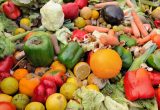Study of sewage gives clues about socioeconomic status, habits
A team of researchers from the University of Queensland and the Norwegian Institute for Water Research has found that the study of wastewater sewage can provide clues about the habits of people that live in different areas. In their paper published in Proceedings of the National Academy of Sciences, the group describes their study and what they learned from it.
Prior studies of public wastewater have highlighted the different kinds of drugs people take in different parts of cities, or which household chemicals are making it into people’s bodies. In this new effort, the researchers looked at sewage wastewater in several parts of Australia to learn more about differences in lifestyle between people of different socioeconomic classes.
The study by the team involved collecting and analyzing wastewater from six Australian states over seven days. In all the samples represented wastewater from approximately 21.1 percent of the population of the country. By comparing wastewater contents and location, and using data from the Australian Bureau of Statistics, the researchers detected patterns such as higher coffee consumption in parts of cities where more wealthy people lived. They found the same for vitamin B biomarkers.
The researchers also found that people in less affluent parts of the country tended to consume more alcohol. They also reported that dietary fiber and citrus consumption was lower for people who did not finish high school compared to those with managerial jobs. And they found that people living in poorer sections of the country tended to take more antidepressants and opioids. Also, they found that socioeconomic status did not appear to be a factor in the amount of antibiotics or artificial sweeteners people consumed—though the drugs atenolol, pregabalin, and tramadol were more popular with lower-income groups.
The researchers acknowledge that there was a certain degree of error in their measurements due to factors such as interactions between chemicals in wastewater. There was also no way to measure output of material in the wastewater, such as whether a large number of people were consuming a small amount of something, or if just a few people were consuming a lot. Still, the researchers suggest their results show that education and occupation have not only a dietary impact, but also influence certain life choices.
- More information: Phil M. Choi et al. Social, demographic, and economic correlates of food and chemical consumption measured by wastewater-based epidemiology, Proceedings of the National Academy of Sciences (2019). DOI: 10.1073/pnas.1910242116 |Journal information: Proceedings of the National Academy of Sciences








